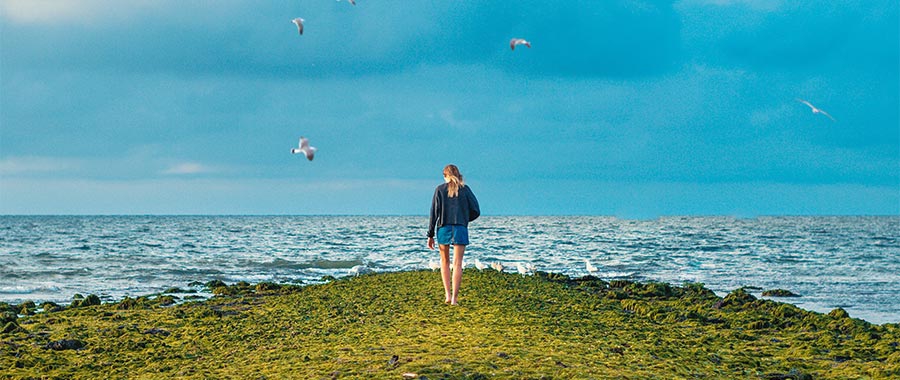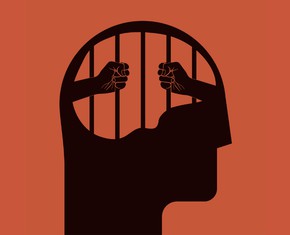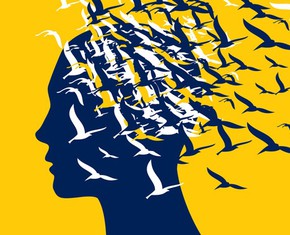The views expressed in our content reflect individual perspectives and do not represent the authoritative views of the Baha'i Faith.
The first time I had appendicitis, my husband, our two-year old baby and I were traveling in beautiful Naples, about to leave for Israel.
My husband, a surgeon, told me the best conservative treatment for appendicitis was fasting. He asked me to wait to be operated on till we got to Israel, a country full of surgeons.
On top of the pain, my grandmother and my mother-in-law, the two people I loved most in the world besides my husband, had both passed on during my pregnancy, and I was terribly depressed. I saw my baby and my husband as everything in the world, and myself as nothing.
Faber and Faber, London publishers, had taken out an option on my forthcoming novel, and I had been creating songs for an internationally successful performing group, but in recent years my writing ability had somehow left me.
My husband, who later realized he had been unconsciously angry with me for not being his mother, told me I had sunk as low as a human being could. Though my baby was happily stimulated by her surroundings and I gave her frequent changes of clothing, I had worn the same dress for a month. I had lost my conversational touch, too: my husband had been working so hard that all he wanted to do at home, before we left for our trip, was plug the radio into his ear, and it was a surprise to me when I heard anything other than baby talk.
In Naples, my self-despising culminated in my praying all night. I felt that this was also a good thing to do in preparation for my soon-to-happen pilgrimage to the Baha’i holy places in Israel.
Like many war babies near and in London, I had been afraid all my life of both going to sleep and not going to sleep, because I’d have several overwhelming nightmares every wakeful night. The war’s nightly air raids had left their traumatic mark.
That night in Naples, as my prayers changed to those revealed for saying at dawn, I begged for something I had purposely denied myself till now: a sign from my beloved grandmother. I added: “Only if it will not hold her progress back in the spiritual realm.” Although morning had dawned, I then fell asleep for half an hour, and had the first dream I had ever had in my life that was not a nightmare. To me this was a momentous occurrence! After that my dreams got better and better, and a third of every 24 hours was no longer spent in terror.
There was a strike at the airport in Naples, so we had to carry our own heavy baggage.
When we arrived in Israel, I began my Baha’i pilgrimage in the golden-domed Shrine of the Bab in Haifa, where Abdu’l-Baha is also laid to rest. This was my fourth day of fasting, so I felt a natural high.
The sunrise had spread gloriously across the entire sky, and below it I felt my life opening, a desert after rain. I remembered Isaiah’s prophecy that when the Glory of God came, the desert would blossom like a rose. Nearing the Bab’s shrine, we pilgrims found trees clipped perfectly around us, and everything the Bab, Baha’u’llah and Abdu’l-Baha had actually touched was strewn with rose petals.
Our guide suggested that we do whatever we felt like in the shrine. For a moment there I bowed my head, but then instinctively my arms made the all-embracing sweeping uplifting gesture that Abdu’l-Baha often used. Though weak, my action seemed to have borrowed the strength of the holy entities in whose spiritual presence I stood. After all, this was a religion that brought self-respect, that predicted no more extremes of riches and poverty, a religion that told “the rich of the midnight sighing of the poor.”
My arms felt totally naked, although I was actually wearing long sleeves. The love of 10,000 people poured through me, and I remembered that the Bab’s followers forgot their own names in his presence. I realized that when I came back to the everyday world, I would still daily leave my bed at dawn and return here in my prayers. I sensed that both humankind and I had come of age, and that, having been in the shrine he shared with the Bab, I would feel Abdu’l-Baha’s presence forever.
We were taken to the barracks at Akka, where Baha’u’llah, the Glory of God, was incarcerated, and where all the prisoners had suffered from dysentery. Legend had it that if a bird flew over Akka it dropped dead. Baha’u’llah’s jailer had asked him, “Is there anything I can do for you?” He replied “Would you restore the old Roman aqueduct, so the people can have fresh water?”
Baha’is have beautified all these places now. The barracks at Akka might have been marvelous spiritually, but you could see how hard Baha’u’llah’s life had been there. Baha’u’llah sold his prayer mat to pay for the burial of one of his retinue. Thereafter it looked like he slept on jagged rocks in his cell.
The second time I had appendicitis, I had just left the hospital in Warrnambool, Australia, after giving birth to my son. I had learned from my time in Naples that fasting was the best conservative treatment, so I pretended to be well. I wanted to avoid hospitalization again, which I feared would stop my ability to breastfeed my son, and separate me again from my daughter. I didn’t know that in Warrnambool they put the baby in with you.
But on the fourth day of fasting I staggered in from house hunting and said to my husband, “You’d better examine me.” He diagnosed appendicitis; but sought confirmation from another surgeon, Dr. Fisher, who asked me “How long have you been like this?”
“It’s the fourth day.”
Dr. Fisher breathed an enormous sigh of relief: “It would have ruptured by now if it was going to.”
I was so calm in my pain that he admitted to thinking “She might have something much worse than appendicitis. She could be dying.”
I have heard of nurses worrying about patients’ quietness until these patients said they were Baha’is. Then the nurses understood that their calmness was not a near-death state of mind but simply general Baha’i acceptance of whatever comes.
The surgeon visited our house again the next morning. My playful young daughter was swinging me around, and he exclaimed “Don’t swing your mother like that–she’s very ill!”
“She’s not very ill” she told him.
A Baha’i woman who had been a Catholic nun was staying with us, and I thought Dr. Fisher might enjoy meeting her because he was Catholic. He was talking with her at table and she had her back to me. He was facing me, and he said to her “My vocation is just a trade, even though I witness dying quite a lot. There is a certain peace that comes over people before death, but it’s an animal thing, not religious.”
As I listened while warming a bottle for my baby son, once again I felt my arms become naked and grow to giant size. If I had lain down on bare jagged rocks I would not have felt them. I sensed life moving fast, as if there’d be half a minute on Earth and then eternity, so there was little need to worry about the vicissitudes here. I grew aware of Dr. Fisher’s eyes shining, while he was staring at me. I saw that he knew now that even an ordinary mortal didn’t have to be dying to dwell temporarily in the spiritual realm:
Praised be Thou, O Lord my God! This is Thy servant who hath quaffed from the hands of Thy grace the wine of Thy tender mercy, and tasted of the savor of Thy love in Thy days. I beseech Thee … to supply him with the good things Thou dost possess, and to raise him up to such heights that he will regard the world even as a shadow that vanisheth swifter than the twinkling of an eye.
Keep him safe also, O my God, by the power of Thine immeasurable majesty, from all that Thou abhorrest. Thou art, verily, his Lord and the Lord of all worlds. – Baha’u’llah, Baha’i Prayers, pp. 129-130.
The third time I had appendicitis, my children were teenagers. My appendix was finally surgically removed, and now my fasting would happily only occur during the Baha’i month set aside for it, which culminates in the Baha’i new year and bestows a “hidden gift” on those who are sincere.
















Comments
Sign in or create an account
Continue with Googleor